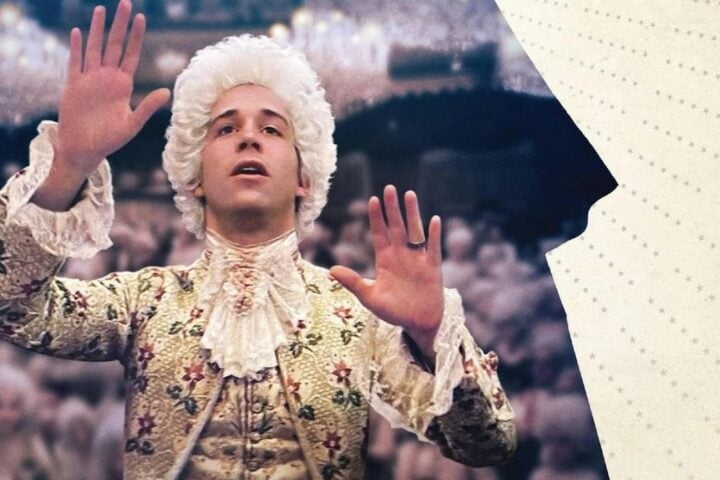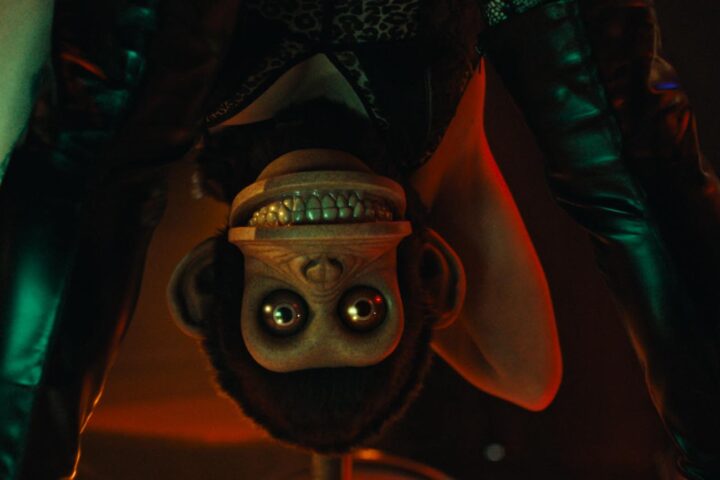Mike White’s darkly comic skewering of the American ideal of the destination vacation continues in the second season of The White Lotus. This time around, vacationers from the U.S., each oblivious to their surroundings and position in their own way, bring their foibles, insecurities, and everyday hypocrisies with them to a White Lotus resort overlooking Mount Etna in Sicily. The series remains precise and incisive in its observations about what makes the upper class tick, even if, to a certain extent, returning to the concept threatens to turn much of what was fresh about the first season into formula.
As in The White Lotus’s first season, the conflicts that the resort-goers carry with them boil over until someone ends up dead—or, rather, several people do, as the flash-forward that opens the season suggests. Daphne (Meghann Fahy) bumps into a floating body while swimming in the Ionian Sea, and in the aftermath we overhear that several more bodies have been discovered. “How many dead guests are there?!” demands hotelier Valentina (Sabrina Impacciatore). That White leaves the question hanging is his cheeky way of upping the ante.
The White Lotus is at once a whodunit, a satire, and a Greek tragedy where fateful powers may be at work behind the petty squabbles of mortals, teasing viewers about which of its overlapping dramas might result in murder. Meanwhile, it alludes, through glimpses of pseudo-classical murals on the hotel’s walls or myths partially recounted by its characters, to the ineffable forces at play in interpersonal relations. It’s a bit heady, perhaps, but White’s irreverent tone—the Italian lounge music that bridges scenes, occasional farcical scenarios of overlapping dates and mistaken appearances—softens the potential pretension into something devilishly playful.
While the structure and themes of the new season are largely carried over from the previous one, the characters are almost entirely new. One primary conflict plays out within and between two couples: Ethan (Will Sharpe) and Harper (Aubrey Plaza), newly minted members of the upper crust, and Daphne and her husband, Cam (Theo James), wealthy yuppies who are much more comfortable in the privileges and endemic hypocrisies of having gobs of money. And such privileges, of course, are very much tied up in gender.
Jennifer Coolidge’s Tanya, a loopy, aging heiress to a San Francisco shipping fortune, and her husband, Greg (Jon Gries), serve as the sole holdovers linking the previous season of The White Lotus to this one. When Tanya greets Greg, who’s arrived in Sicily separately, in the elaborate courtyard of the Sicilian hotel, the man is outraged that she’s brought her assistant, Portia (Haley Lu Richardson), with her. It’s easy enough to see his point—and Tanya’s relationship to Portia turns out to be co-dependent and exploitative—but Greg is quickly revealed to be cruel and manipulative, taking advantage of Tanya’s perpetually delicate emotional state.
If the first season of The White Lotus was primarily a dramedic look at the at-once exaggerated and invisible class dynamics of the vacation resort, season two makes class a supporting theme in its look at romance and the tangled gender relations of 21st-century America. Portia tries to balance her desires for “a hot Italian dude to throw her around” with her much safer attraction to the “so sweet” Albie (Adam DiMarco). Albie has accompanied his father, Dom (Michael Imperioli), and grandfather, Bert (F. Murray Abraham), to the resort, the trio capturing in triptych the gender relations of successive generations.
Descended from Sicilian immigrants, the three men are visiting the island to get back in touch with their heritage, which they largely understand through The Godfather films. Each character embodies a different kind of relationship to women, with Albie cast in the mold of a prototypically “woke” Stanford graduate, Dom a philandering Hollywood producer, and Bert the mildly dirty old grandpa. Despite the evident differences in their thoughts about women, their experiences at the resort each pivot in separate ways around the same local sex worker, Lucia (Simona Tabasco), and her friend, Mia (Beatrice Grannò).
Among other things, White is also interested in one of the classic questions around gender and sex: To what extent are our feelings and actions conditioned by the time in which we live, and to what extent do they recapitulate stories that have been handed down from time immemorial? For someone like Bert, played with cringeworthy aplomb by Abraham, the answer is clearly the latter. This is true even when it comes to his Dom’s separation from his wife, who wants nothing more to do with him. Citing the Greek myth of Hades’s rape of Persephone with a flippancy that makes Albie uncomfortable, Bert counsels Dom in an accusatory tone, “Demeter forgave Hades and he raped her daughter. I mean, whatever you’ve done can’t be as bad as that.”
The White Losus’s own point of view would seem to be that things are rarely quite as straightforward as the myths we’ve cooked up to explain the mysteries of love, desire, jealousy, and the “other” to ourselves—whether they’re ancient or modern. Our tools of interpretation often don’t line up with the messy reality of others, or even of ourselves.
Harper spends much of the season’s fourth episode stewing at Ethan over an infidelity she believes she’s discovered. The truth is more complex than she assumes but hardly less distressing in terms of what it says about her teetering marriage and the feeble lies she’s been telling herself about their superiority vis-à-vis their yuppie frenemies.
Similar to the first season, the new one shows the resort to be a place not where illusions of happiness are fabricated, but where they crumble—along with its guests’ sense of themselves. In the five episodes made available to press, the various threads that comprise the plot are just beginning to tighten into a knot that one can imagine could result in murder. If sometimes, despite the shift in setting, the season can feel as familiar as a trip we’ve taken before, The White Lotus remains television’s most intriguing and precise murder mystery-cum-social satire.
Since 2001, we've brought you uncompromising, candid takes on the world of film, music, television, video games, theater, and more. Independently owned and operated publications like Slant have been hit hard in recent years, but we’re committed to keeping our content free and accessible—meaning no paywalls or fees.
If you like what we do, please consider subscribing to our Patreon or making a donation.





